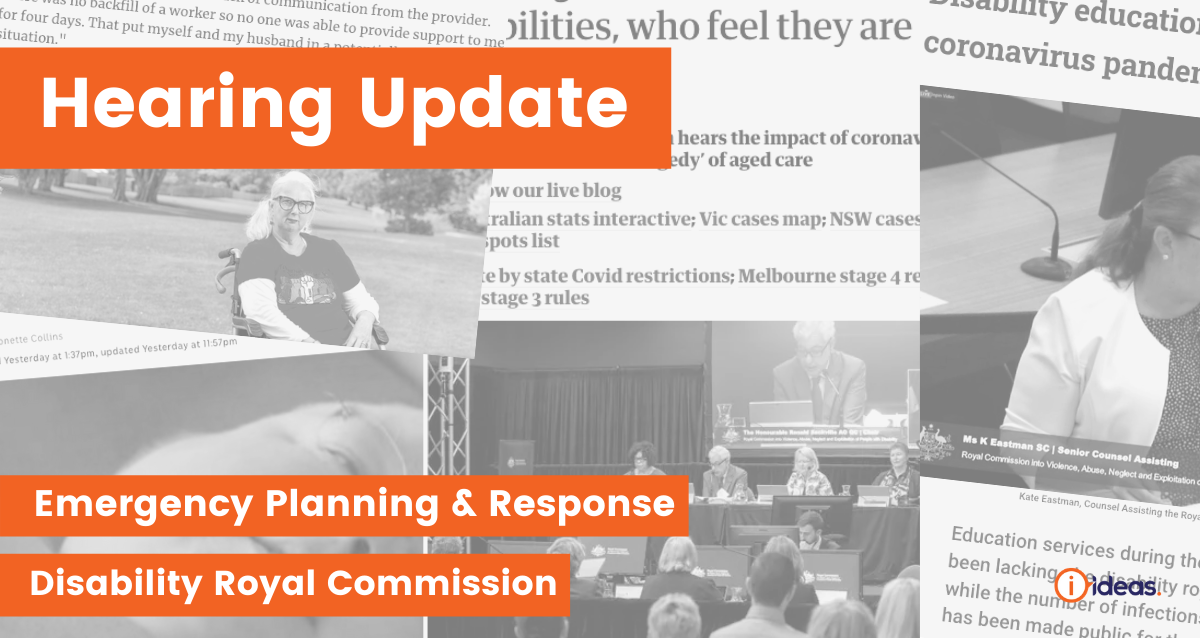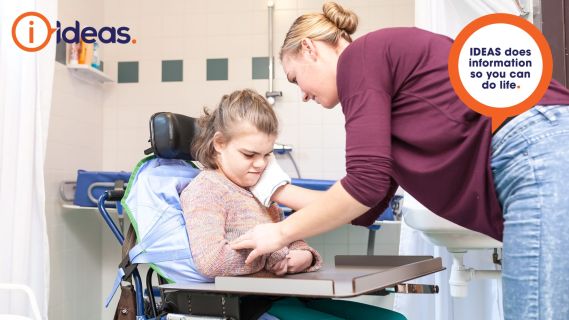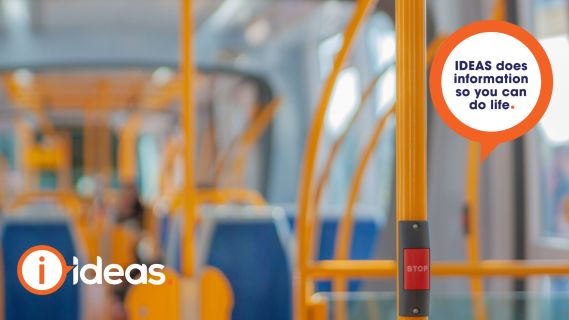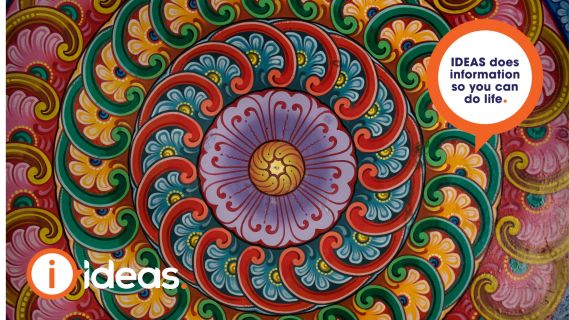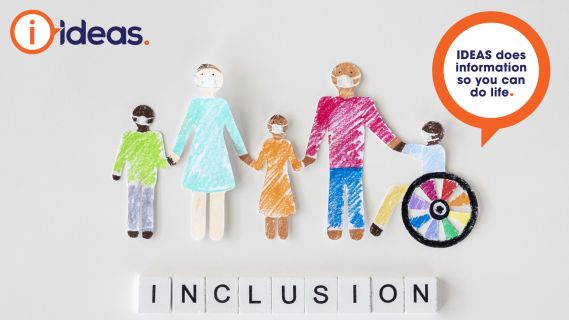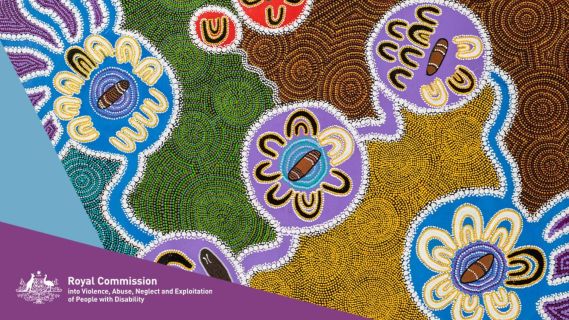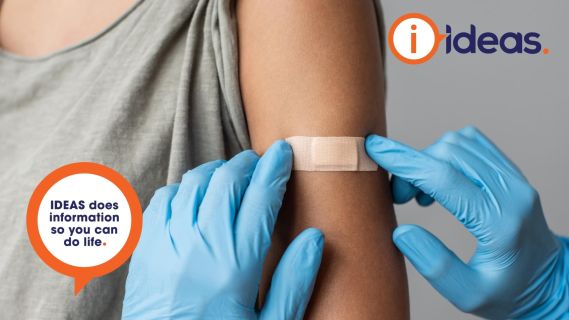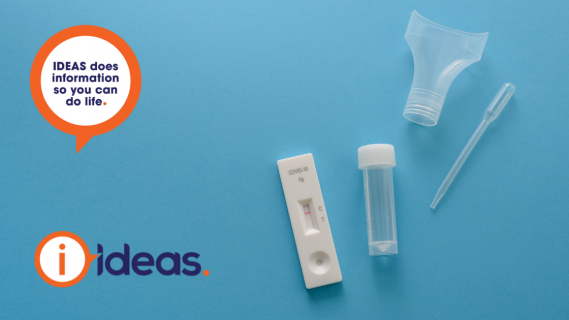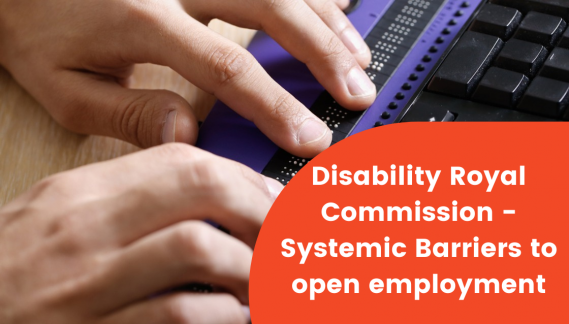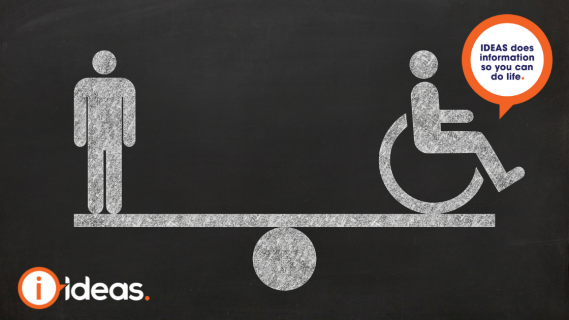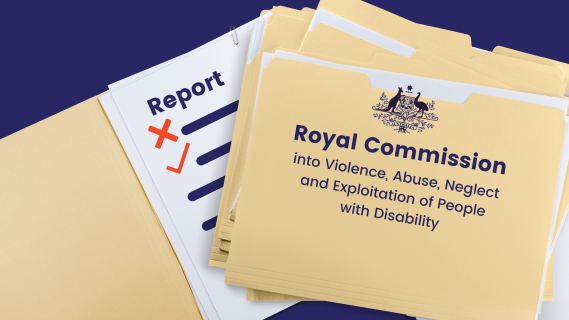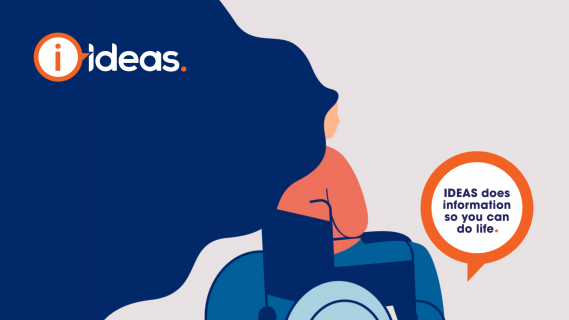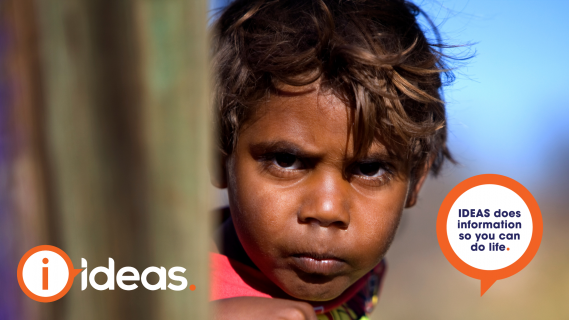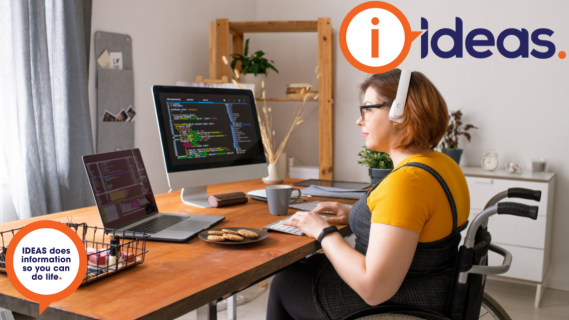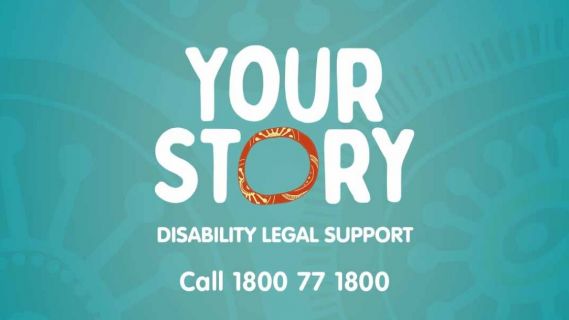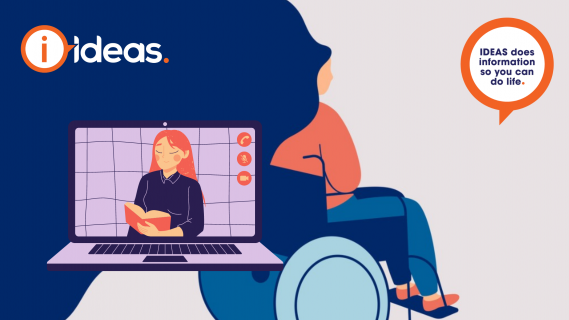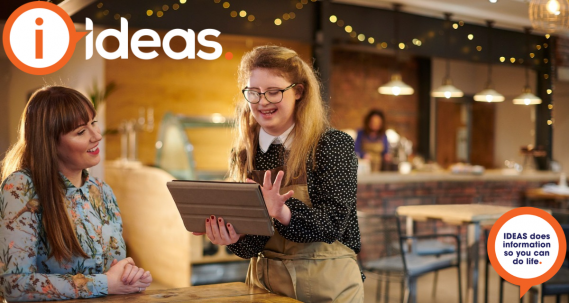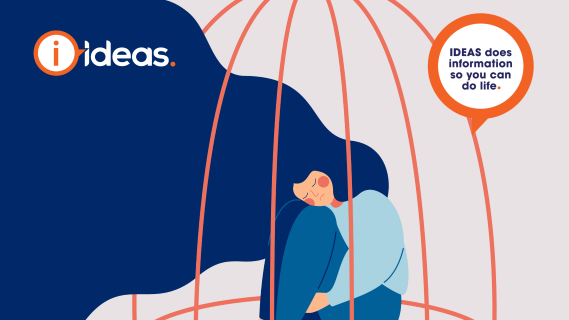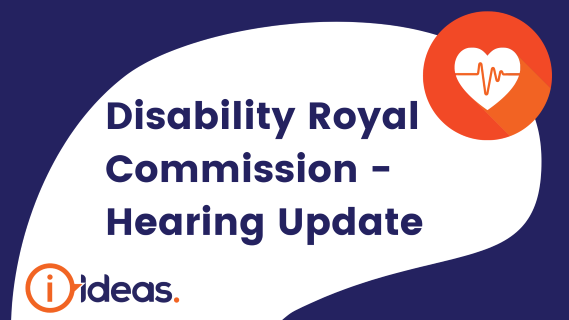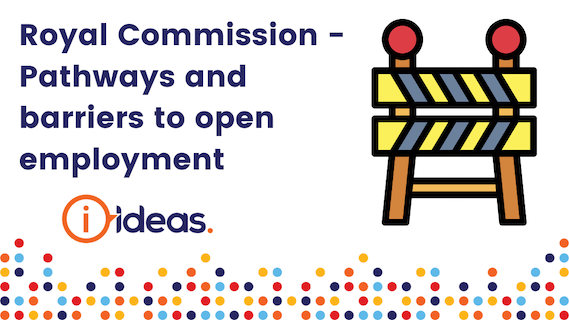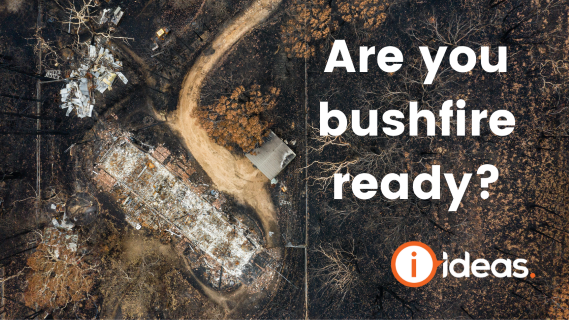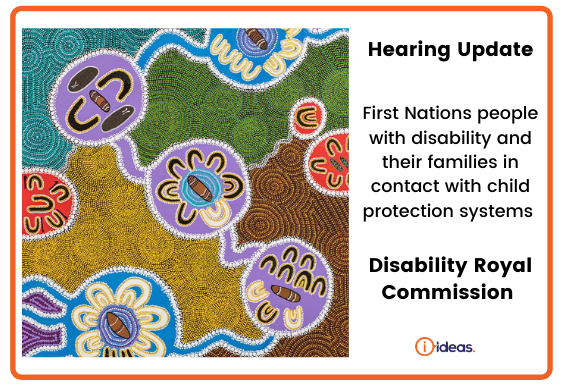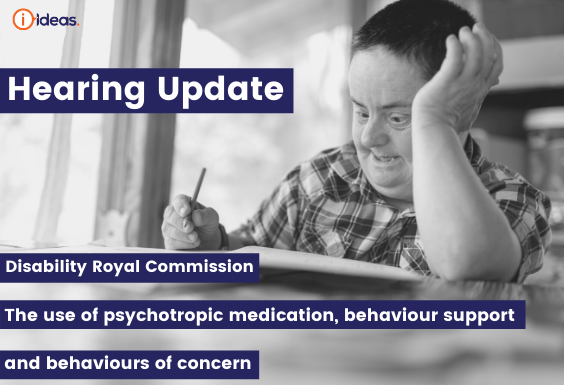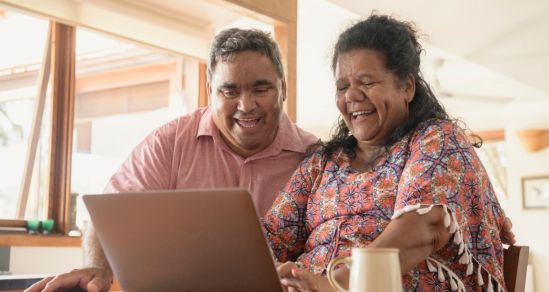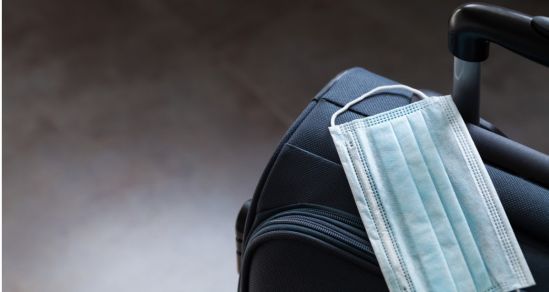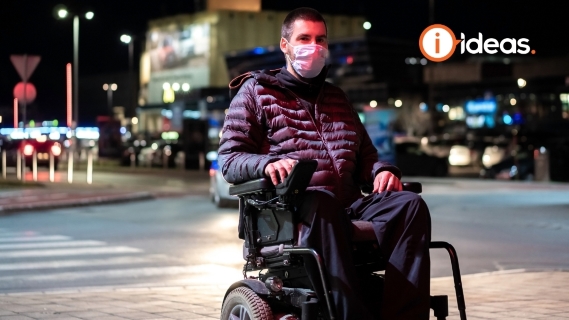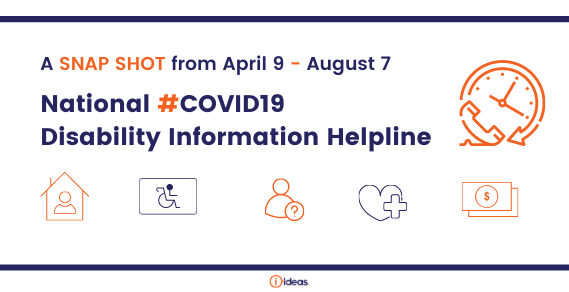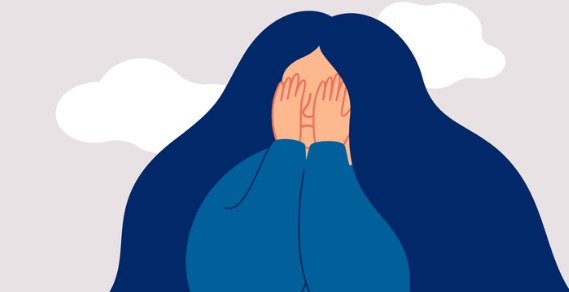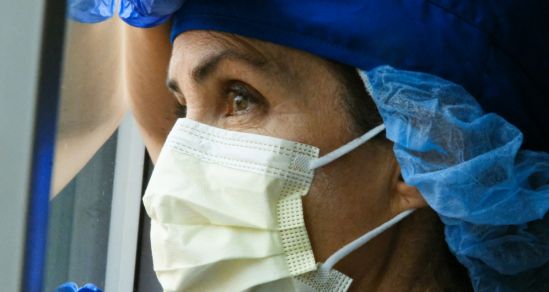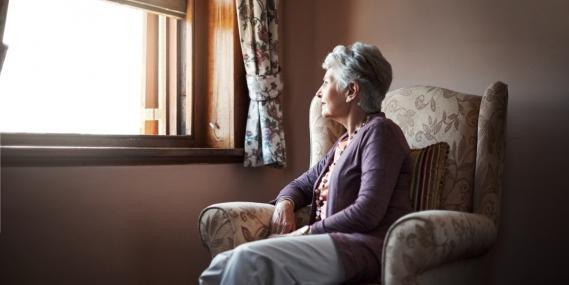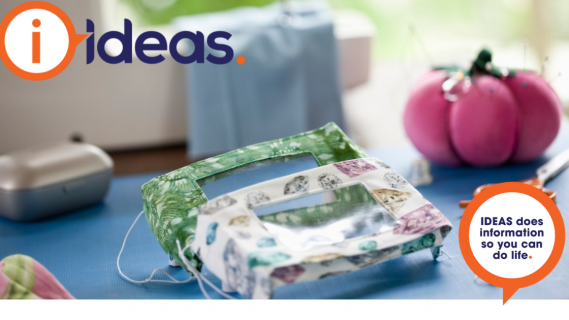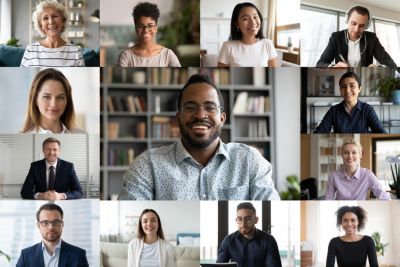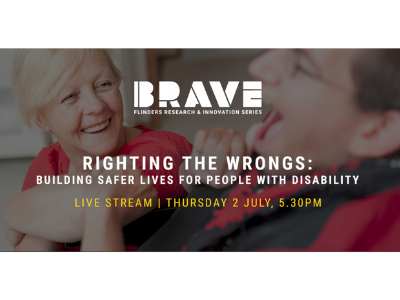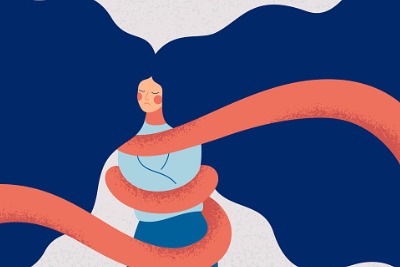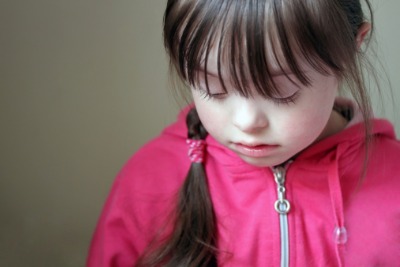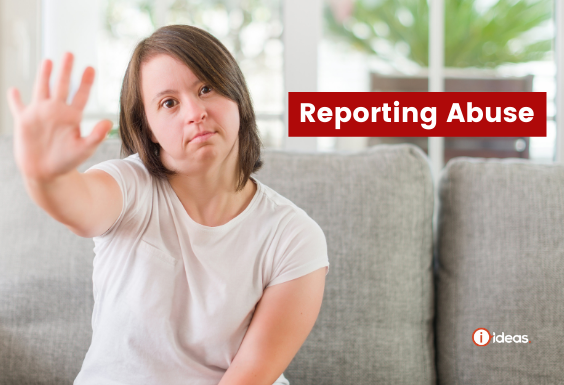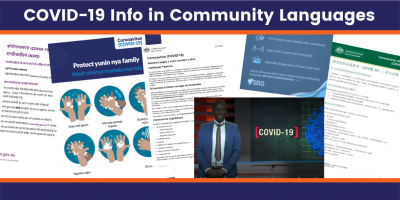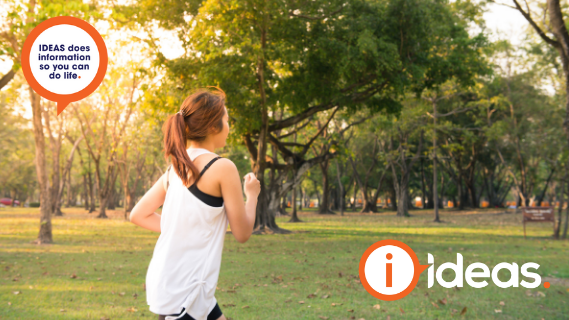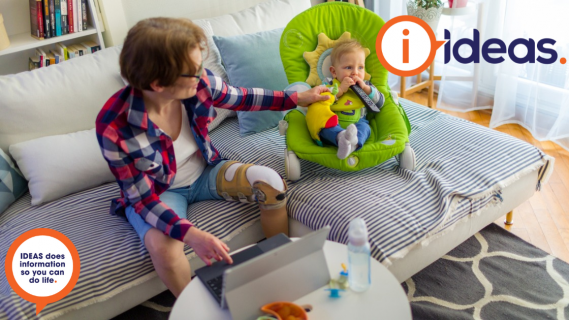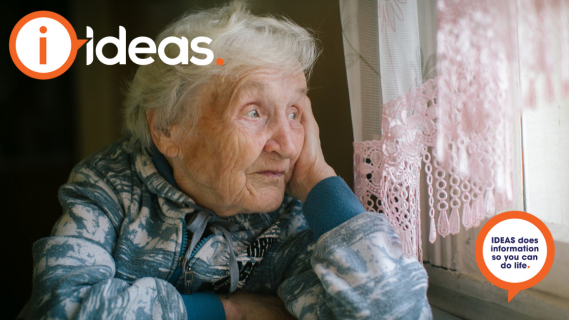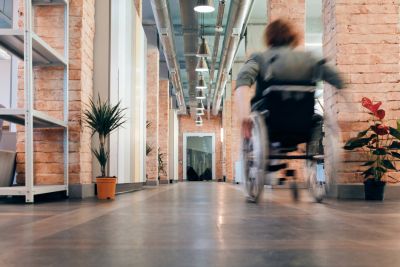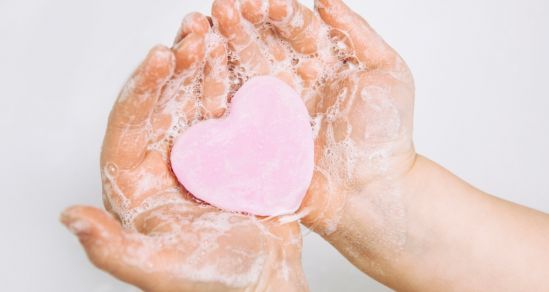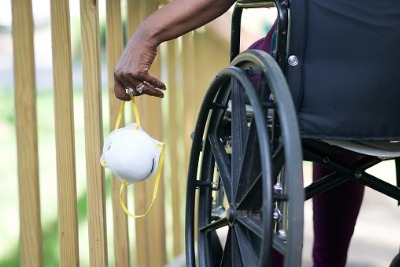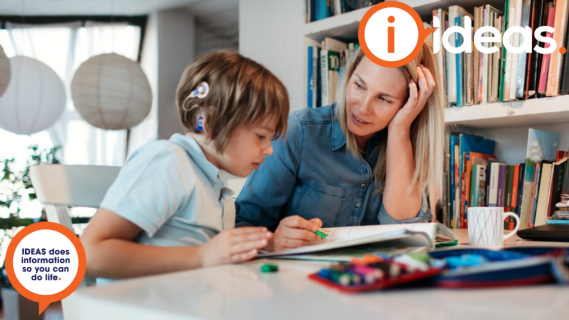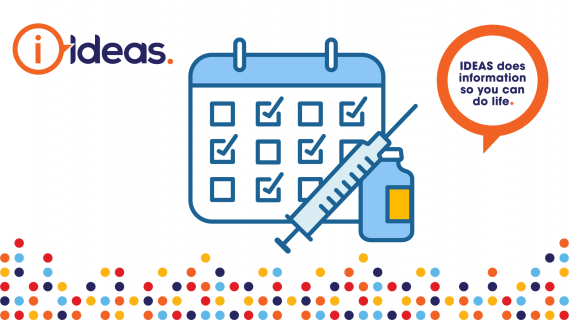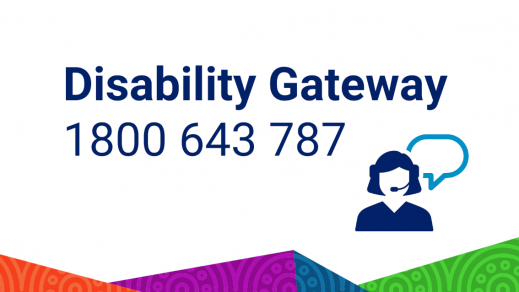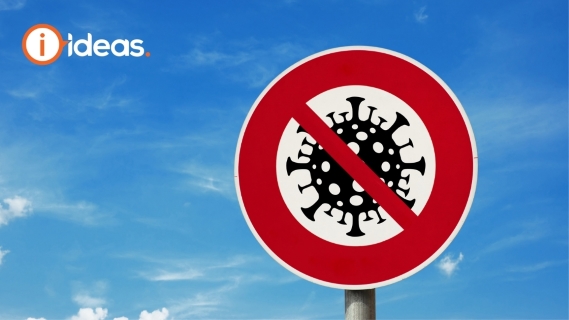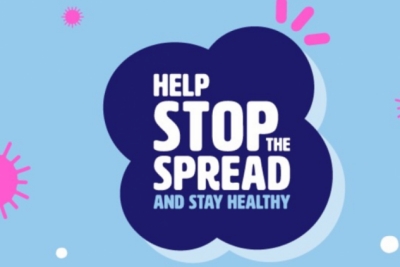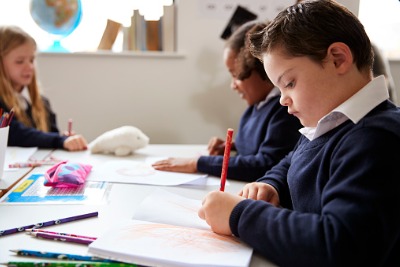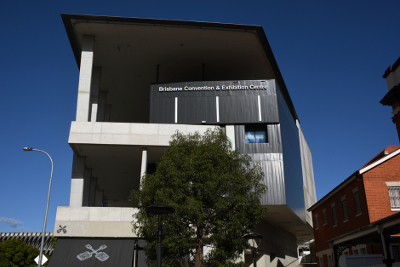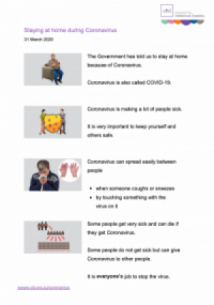The Disability Royal Commission turned it's focus to COVID19 and Emergency Planning and Response at a public hearing in August.
'The impact of the pandemic on people with disability may not have received the same level of media coverage or public attention as the loss of life in aged care facilities. But that does not diminish the severity or significance of the impact of the COVID-19 pandemic on people with disability'
- Opening statement on August 18, Chair Ronald Sackville AO QC
The Disability Royal Commission was established in April 2019 in response to community concern about widespread reports of violence against, and the neglect, abuse and exploitation of, people with disability. Find out more about the Royal Commission here, including how it works, when it reports, other issues it is investigating and how to take part.
In this article IDEAS has brought together media coverage, official transcripts, submissions and reports on the weeks hearing. Content Warning - some of the stories and information below contain details about abuse, neglect and mistreatment. There is Support if you have any concerns because of this information.
Updated in December 2020
On December 1 the DRC shared it's Report on this hearing with Chair Sackville saying:
The failure of the Australian Government to consult people with disability and the related failure to develop a plan specifically addressing the needs of and challenges faced by people with disability produced serious adverse consequences for many people with disability.
Neither the Australian Government nor its agencies considered in any systematic or sustained fashion what measures were required to support and protect the safety, health and wellbeing of people with disability during the early stages of the pandemic.The report details 22 Recommendations covering items such as consultation, planning, the NDIS, health care rationing and advocacy. Information though mentioned throughout the report and by hearings was not included as a recommendation.
The Government has responded to this report with Minister Ruston, via Media Release on December 2nd stating among other things:
The Government established the COVID-19 Disability Information Helpline, introduced measures to meet the immediate needs of National Disability Insurance Scheme (NDIS) participants and provided additional disability employment support.
El Gibbs disability rights advocate and writer has expressed in an article for Croakey News that:
'the latest report from the DRC makes clear what many disabled people already knew: we were invisible during the pandemic; overlooked, forgotten.'
Official Transcripts
Media Articles
For people with disability, the pandemic has brought hardship and neglect, Commission hears
Croakey August 25
Despite the refrain throughout the COVID-19 pandemic that ‘we are all in this together’, the Royal Commission into Violence, Abuse, Neglect and Exploitation of People with Disability last week revealed the many hardships encountered by people with a disability over the past six months. The Commission heard evidence on Friday that, as of 13 August, 76 National Disability Insurance Scheme (NDIS) participants had contracted COVID-19, and eight of these people had died.
Pandemic experience shows the NDIS is still not working like it should
The KI Islander August 22
"Please stop making this so hard. We are bruised and fragile already, COVID has made us even more vulnerable, and then we have to fight against the very service that is meant to be helping us. Please stop making our needs a battleground, stop assuming we are somehow trying to swindle services we don't need, and just let us have the NDIS that we were meant to get."
Disability not mentioned in virus plan
The Advocate August 21
Kalena Bos, 30, said she was fearful of being arrested or copping a $16,800 fine if she left her house and wasn't sure if permits were needed to visit her parents.
The commission previously heard evidence from people with a disability and advocates that information about coronavirus was not accessible or was conflicting.
'A singular focus': governments move to contain COVID-19 in disability homes
The Age August 21
Disability advocates have welcomed a new cap on workers moving in and out of disability care homes to reduce the risk of COVID-19 outbreaks, but question why it took so long for the Victorian government to act. Alarmed at a rising number of people contracting COVID-19 in residential disability services, the Victorian government moved on Friday to limit the number of people working in multiple services and established a new Disability Response Centre.
Eight NDIS participants have died from Covid, disability inquiry told
The Guardian August 21
Eight people who access Australia’s National Disability Insurance Scheme have died from Covid-19 since the start of the pandemic, the disability royal commission has been told. The figure – the first time the total number of deaths among scheme participants has been reported by federal authorities – was revealed by the NDIS Quality and Safeguards Commission on Friday.
“The commission has had eight deaths reported to us of participants passing away from Covid-19 whilst positive with Covid-19, and one worker,” Samantha Taylor, the NDIS Commission registrar, told the hearing.
While there are 400,000 NDIS participants, about 4.4 million people identify as having a disability in Australia, meaning the data now reported by the NDIS may only cover a fraction of all cases among people with disabilities.
Health bureaucrat tells royal commission people with disabilities not mentioned in coronavirus plan
ABC News August 21
- Health bureaucrat admits people with disabilities were not specifically mentioned in the COVID-19 response
- The action plan was prepared very quickly under great pressure, he said
- There is no single area in the Health Department with responsibility for the health of people with a disability
Simon Cotterell, Assistant Secretary from the Department of Health told the commission, staff worked under immense pressure to prepare the action plan, but that people with disabilities were left out. "It was prepared very quickly and under great pressure by staff conscientiously doing their very best. I think it is an omission that disability is not mentioned .... but the word 'vulnerable groups' is used," he said.
Advocates say the disability community is frustrated by confusing and inconsistent information during the crisis
Pro Bono News August 21
People with disability and their families felt forgotten amid the first wave of the coronavirus pandemic and many struggled to make ends meet, new research shows. Every Australian Counts surveyed more than 700 National Disability Insurance Scheme participants and their families in May-June about the early impact of COVID-19 and the ensuing lockdown. Almost a third (32 per cent) of respondents said their costs had gone through the roof, leaving them feeling stressed, anxious and stretched almost to breaking point. “This increase in expenses for grocery delivery fees, increase in purchasing home delivery meals and loss of income is now putting us into considerable debt that I cannot afford to repay,” one respondent said.
Let’s heed the warnings from aged care. We must act now to avert a COVID-19 crisis in disability care
The Conversation August 21
Feds to front disability virus inquiry
The Standard August 21
Senior government officials will give evidence at a royal commission examining the impact of coronavirus on people with a disability. The commission has previously heard the Commonwealth was slow to create a disability specific health plan, which came after significant lobbying.Deputy Chief Medical Officer Nick Coatsworth is among witnesses expected to appear before the Sydney-based commission on Friday.
The risk of COVID to people with disability
ABC Radio National August 20
The Disability Royal Commission continues today, with the inquiry set to hear about similarities between the disability and aged care workforces – both of which are battling to keep COVID-19 cases under control.
Victoria's Chief Health Officer, Brett Sutton, says outbreaks in the disability sector are among Victoria's biggest challenges as it tries to drive down the number of new cases.
Indigenous people with disability vulnerable during pandemic, Royal Commission hears
SBS News August 20
While the COVID-19 pandemic exacerbated poverty, food insecurity, and a lack of support for Aboriginal and Torres Strait Islander people, First Peoples Disability Network (FPDN) told the Royal Commission on Thursday, these issues are faced in Indigenous communities every day. FPDN CEO Damian Griffis said COVID-19 escalated these issues but they existed long before the coronavirus crisis. During the pandemic, FPDN distributed 1600 food packages to people in NSW and the ACT.
Disability sector left vulnerable by coronavirus response despite early warnings, royal commission hears
ABC News August 20
Anne Kavanagh, director of the Disability Institute at the University of Melbourne has told the Disability Royal Commission that concerns she flagged with state and federal governments back in April about those with disabilities receiving care in congregate or group settings have now happened in Victoria.
"Unfortunately what I worried about in April has come to bear," she told the commission.
Australian disability homes at risk of Covid-19 exposure, royal commission hears
The Guardian August 20
Carers working across multiple disability group homes and the aged care sector could spread the virus into the disability community, the royal commission has heard. Prof Anne Kavanagh, the director of the Disability Institute at the University of Melbourne, said on Thursday federal and state authorities needed to look at ways to ensure “minimised movement of workers”, and also warned about a lack of PPE training for some carers.
Royal commission hears coronavirus virus led to disability isolation and alienation
The Canberra Times August 20
Canberra woman Sarah Yahya has told a royal commission she felt alienated, vulnerable and feared people with a disability were forced to take a back seat during the coronavirus crisis. Ms Yahya, who is profoundly hearing impaired and relies on lipreading and facial expressions to understand speech, gave evidence to the disability royal commission on Wednesday. The 25-year-old said she had difficulty accessing coronavirus information due to her hearing impairment, telling the commission she became distressed after reading social media comments suggesting COVID-19 was about survival of the fittest and care for disabled, chronically-ill and elderly people shouldn't be prioritised.
Disabled woman gets COVID-19 after NDIA refuses sister's care
The Age August 19
A disabled woman has caught COVID-19 from a support worker after the National Disability Insurance Agency refused to allow her sister to provide care instead during the pandemic. Sheree Driver told the disability royal commission on Wednesday that her sister's mental state had rapidly declined after being without care for almost a month as a result of the decision.
Women with disability at greater risk of violence during lockdown
Community Care Review August 19
Nicole Lee, whose husband was previously jailed over violence perpetrated against her, is an advocate for women with disability who are experiencing family violence and a board member of the Safe Steps Family Violence Response Centre in Victoria, which runs an emergency phone line.
“Disabled women are experiencing violence at three times the rate of able bodied women, for extended periods of time and more severely than other women,” Ms Lee told the commission.Violent partners are more likely to be working at home and potentially increasing the frequency of violence perpetrated.nThe health and economic impacts of the pandemic are also likely to heighten stress levels within already violent households.”
Australian children with disabilities excluded from online learning during pandemic, inquiry told
The Guardian August 19
One mother – known to the commission as ABB – said that when the pandemic led to the introduction of home learning, her daughter, who is 12 years old and lives with Down syndrome, was excluded from her school’s Google Classroom platform. “The first thing that happened was an email from one of the learning and support teachers that indicated that she had not been added to the Google Classroom, which is the platform that all the other students were using,” she said.
Disability Royal Commission hears from woman who has been bedridden for 20 years
ABC News August 19
A woman who has been bedridden for two decades has told a royal commission she's worried she will lose access to life-changing technology after the coronavirus pandemic. Ricky Buchanan has lived with multiple disabilities since she was a teenager and hasn't been able to leave her Melbourne home for 20 years.
Disabled woman survived on muesli bars while bedridden: Royal Commission
News.Com August 19
A disabled woman was bedridden for nine days, surviving on only muesli bars with no help with meals or care, a royal commission has been told. Melbourne woman Ricky Buchanan, 45, told the disability royal commission her friend went nine days without any disability support because she was waiting on a COVID-19 test and carers would not come until she tested negative.
Disability education lacking in Australia during coronavirus pandemic, royal commission hears
SBS News August 19
The single mother of a NSW student with Down syndrome felt her daughter was treated like an afterthought when her high school shut due to coronavirus, a royal commission has heard. The woman, who wants to remain anonymous, said educational resources provided by the school were cartoonish and her daughter wasn't included in online learning groups."At the core of this there is some deeply-rooted ableism," she told the commission on Wednesday.
No support worker and 'unhelpful' Helpline: Tammy Milne details COVID-19 experience to Disability Royal Commission
The Advocate August 18
A woman with a disability spent four days without a support worker during the height of the North-West coronavirus lockdown, the Disability Royal Commission has heard. The 55-year-old was also unable to get any information on emergency carers when she called a government helpline. "The service was so unhelpful it could have been automated," Tammy Milne said in her submission.
'Under siege': coronavirus threat for people with disability
Canberra Times August 18
People with disability have been left feeling expendable and unheard as governments, media and the community respond to the coronavirus pandemic, the royal commission has heard.
For months, we've been reporting on the impact of the pandemic on the lives of Australians living with disabilities. Now, a Commonwealth inquiry is preparing to delve even further.
Submissions and Evidence
Every Australian Counts
“We’ve been forgotten. We need more help. We need things to be easier”. They are the overwhelming messages to come out of our Coronavirus survey for people with disability and families.
Children and Young People with a Disability Australia
No plan, no voice, clumsy solutions for children and young people with disability through COVID‑19
Report after report has shown clear gaps for children and young people with disability through COVID-19 planning and response, with significant consequences and harm. “Children and young people with disability and their families have lost access to essential services and supplies, received inconsistent and unclear messages from government, and face ongoing exclusion in remote learning”.
IDEAS
![]() IDEAS Response. Disability Royal Commission Issues paper - Emergency Planning and Response
IDEAS Response. Disability Royal Commission Issues paper - Emergency Planning and Response
There needs to be a single, dedicated freecall line for people with disabilities in permanent operation, which is advertised very heavily as the primary contact point for people with disabilities in times of emergency.
Our experience shows us that people with disability become more vulnerable when they are excluded. It is therefore vital to include people with disabilities in emergency planning at all levels of government – for federal, state and local. They are experts not only on their individual disability but also, importantly, on the barriers to people with disability getting their needs met safely.
Centre of Research Excellence in Disability and Health
A joint response from the Centre for Disability Research and Policy and Centre of Research Excellence Disability and Health to the Issues Paper: Emergency Planning and Response, Royal Commission into Violence, Abuse, Neglect and Exploitation of People with Disability
The lack of attention to emergency planning with regard to people with disability and pandemics at all and particularly using disability-inclusive and disability-responsive approaches has become evident in the country’s response to managing the current public health emergency.
Disability-specific and disability-responsive means building on the knowledge of people with disability, working with people with disability, their families and carers (or others who stand as advocates with them) to build their preparedness capacity.
Council for Intellectual Disability
How has the Coronavirus pandemic affected people with intellectual disability?
Witness Anthony has found information about the pandemic confusing.“There were different messages from the Prime Minister and the Premier. It was very confusing for me.“I was confused by there being multiple chief medical officers. Who is in charge? Which government is in charge?”
“I have a phone but technology is not easy – it’s not easy for me to do video calls. I don’t have everything set up. Not all persons with disability have smart phones and good internet.”
More details will be added as the hearing progresses.
More Information
Easy Read - PDF Format or Document format
The Disability Royal Commission has set up support services for people with disability affected by or interacting with the Commission process. These supports include counselling, advocacy, financial and legal help. For more information and links read our resource on Royal Commission Support Services.
About the Royal Commission
To see more about how the Disability Royal Commission works, other issues it is focusing on and how to have your say see Royal Commission seeks comment for Issue Papers
IDEAS does information so you can do life!

